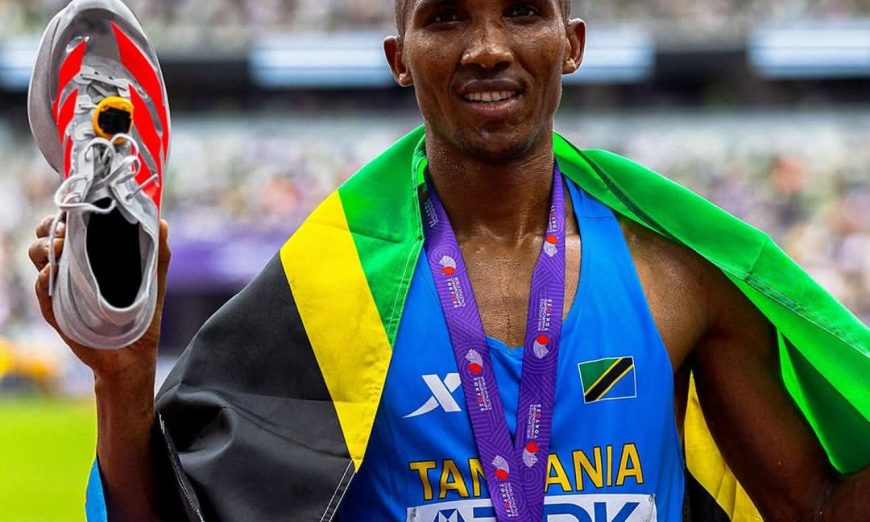WHEN I first set foot in Japan 25 years ago, on an invitation extended through my then employer, Habari Corporation, I did not expect to find Tanzania’s name so alive in the memories of people thousands of miles away.
Representing The African newspaper in my two-week tour, I travelled widely – to Miyajima Island, Hiroshima, Kyoto, Toyota City, Osaka, an elementary school, and even the headquarters of Nippon Hōsō Kyōkai (NHK) in Tokyo.
In every place, amid polite conversations about my country, one name consistently broke through – Juma Ikangaa.
The legendary marathoner, who won the Tokyo Marathon twice in 1984 and 1986, and the Fukuoka Marathon in1986, in which he also held the 2nd position in 1987, had left an indelible mark on the Japanese imagination. Long after the medals had been won and the races run, in Japan, Ikangaa remained synonymous with Tanzania.
My hosts would beam when I introduced myself as Tanzanian, responding almost in chorus: “Ah, the land of Juma Ikangaa!” In that moment, I felt both proud and humbled, reminded that a single athlete could shape the identity of an entire nation in the eyes of the world.
Fast forward to 2025, and once again, it is Japan that has given Tanzania a global stage. In Tokyo, Alphonce Felix Simbu achieved what had eluded Tanzanian athletics for decades – a world championship gold medal.
Simbu’s marathon victory at the 2025 World Athletics Championships today, 15th September 2025, secured in a heart-stopping photo finish over Germany’s Amanal Petros, was the narrowest in the history of the event. But it has made him Tanzania’s first athlete ever to win a gold medal at world championships
For Tanzanians, this was more than just a race. It was redemption after 40 years of waiting since the days of Ikangaa, Filbert Bayi, and Suleiman Nyambui. Bayi’s world records in the 1500 metres and the mile in the 1970s, and Nyambui’s Olympic silver in 1980, once made Tanzania a respected name in athletics.
But while Kenya and Ethiopia surged ahead to dominate global distance running, Tanzania’s light dimmed. Underfunded programs, poor facilities, and weak governance reduced a once-promising nation to a footnote in East African athletics.
That is why Simbu’s victory in Tokyo resonates so deeply. Like Ikangaa before him, he has carried Tanzania into global consciousness through sheer endurance and discipline. But unlike Ikangaa, he has delivered the one thing Tanzania had never held before – a world title.
The symbolism is powerful. One of Ikangaa’s defining moments had come on Japanese soil, and now, so too has Simbu’s. Both men, in different generations, have used the marathon – the loneliest of races – to write Tanzania’s name into history.
One inspired admiration; the other fulfilled a dream. Together, they connect the past and present in a narrative of resilience and national pride.
The question now is whether Tanzania can build on this moment. Simbu, at 33, knows his career will not last forever. Yet his words after the race point to a bigger legacy:
“As an athlete, you have to learn for tomorrow, train hard, keep going … I want young Tanzanians to believe it is possible. If I can do it, so can they. We just need the right support.”
Support has always been the missing link. Without it, Ikangaa’s fame became memory rather than momentum. Without it, Bayi and Nyambui’s heroics became isolated flashes.
With it, Simbu’s triumph could spark a new chapter – one where Tanzania consistently produces champions instead of waiting decades for the next star.
As I reflect on my 2000 visit, I recall how proud I felt when the Japanese introduced me as being from “the land of Juma Ikangaa.”
Today, Tanzanians everywhere can carry the same pride, this time with Simbu’s name. From Fukuoka in the 1980s to Tokyo in 2025, Japan has twice been the canvas on which Tanzania painted its finest athletic moments.
Ikangaa began the story. Simbu has renewed it. And once again, under Japanese skies, Tanzania has found its glory.










